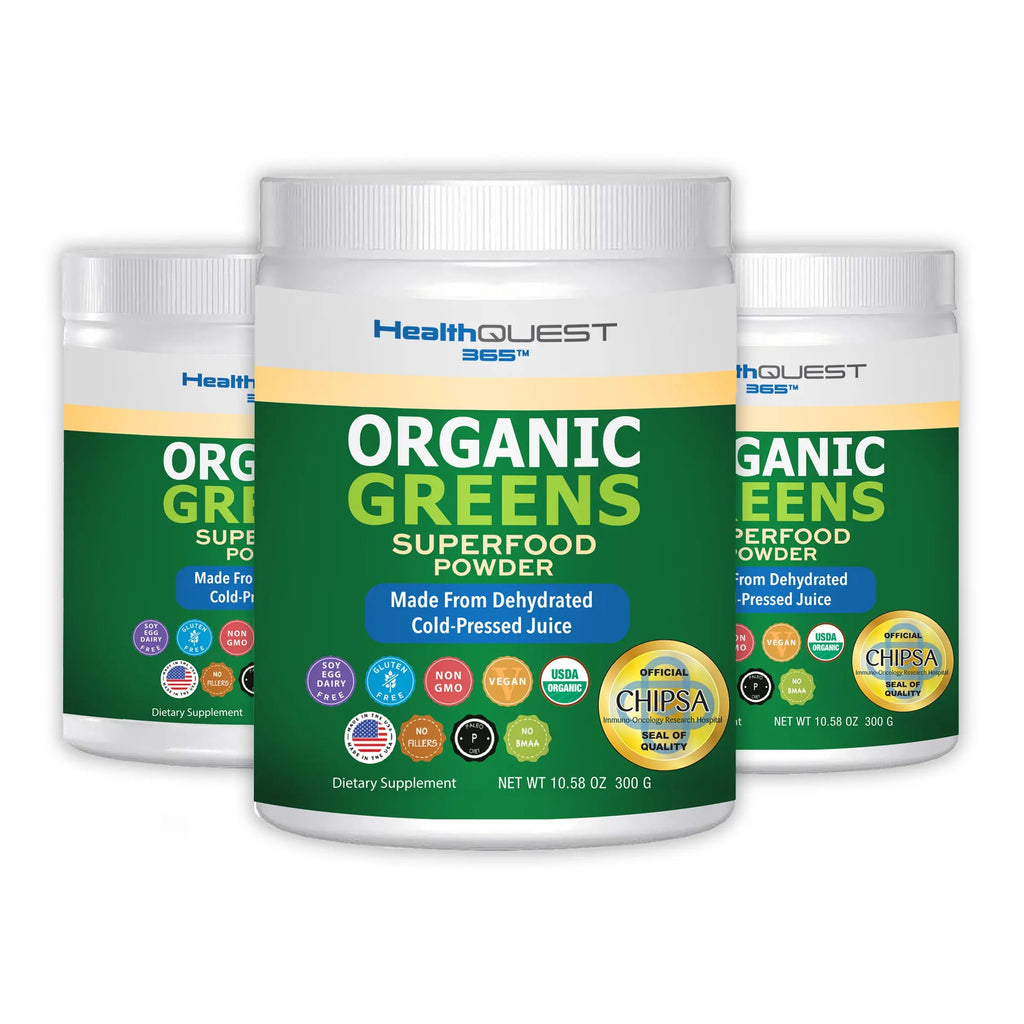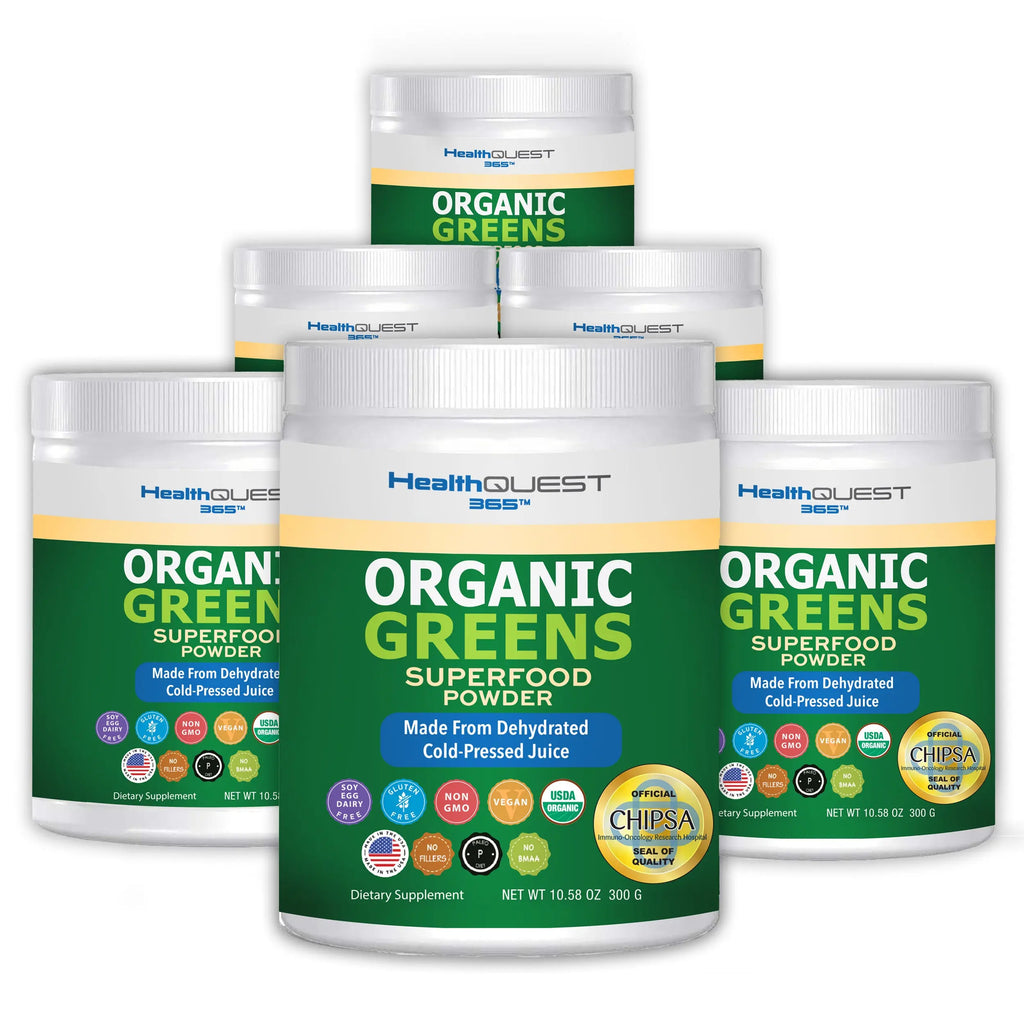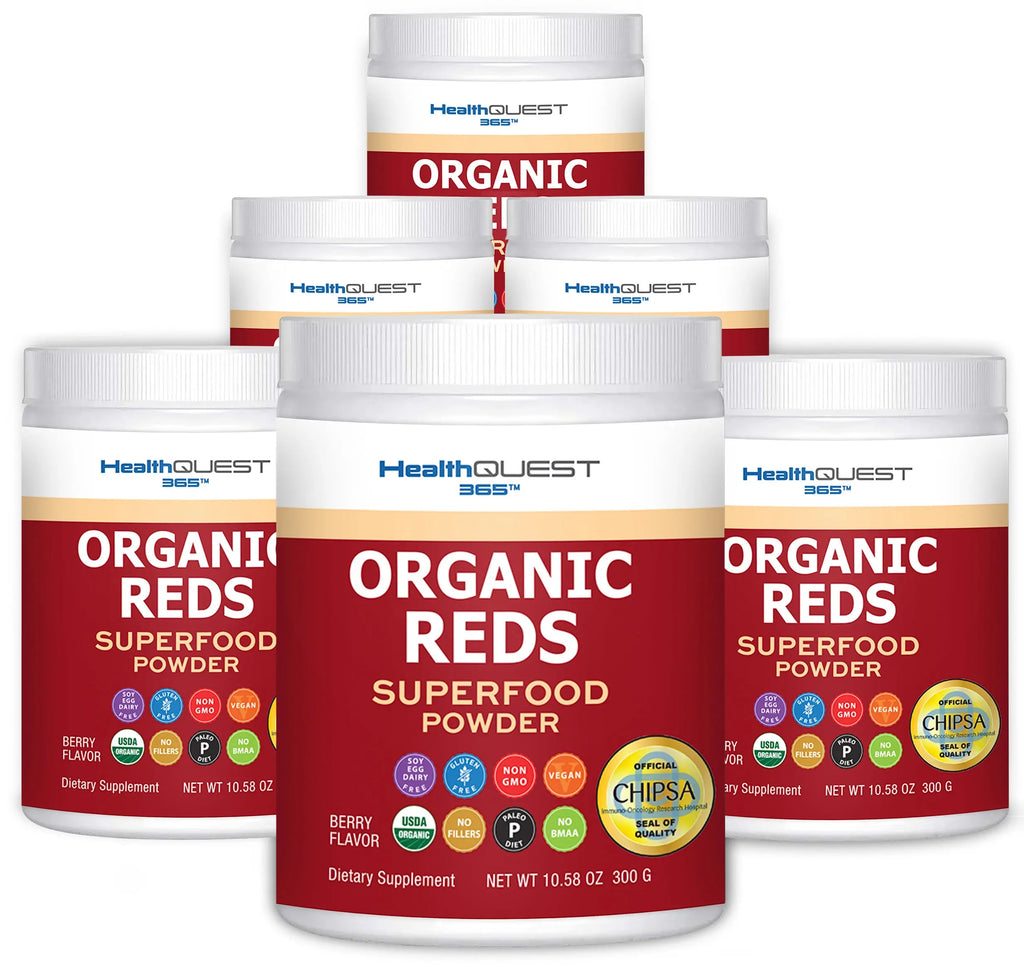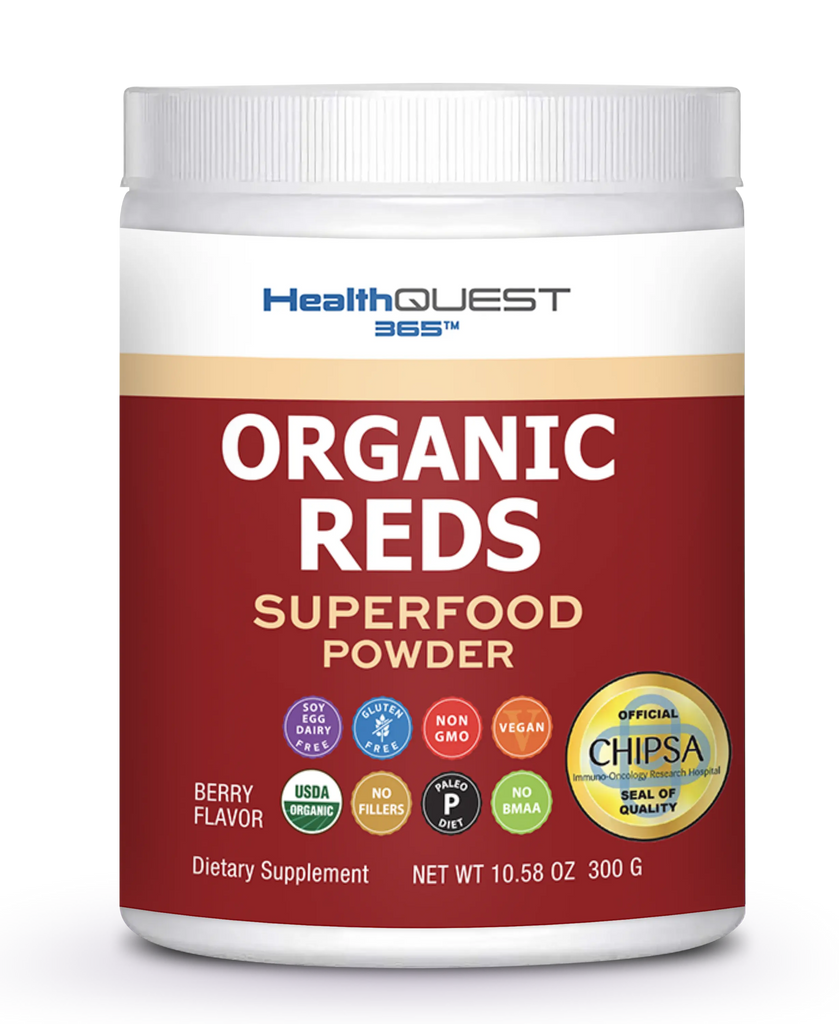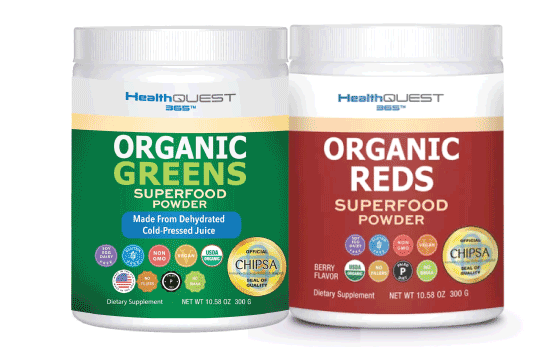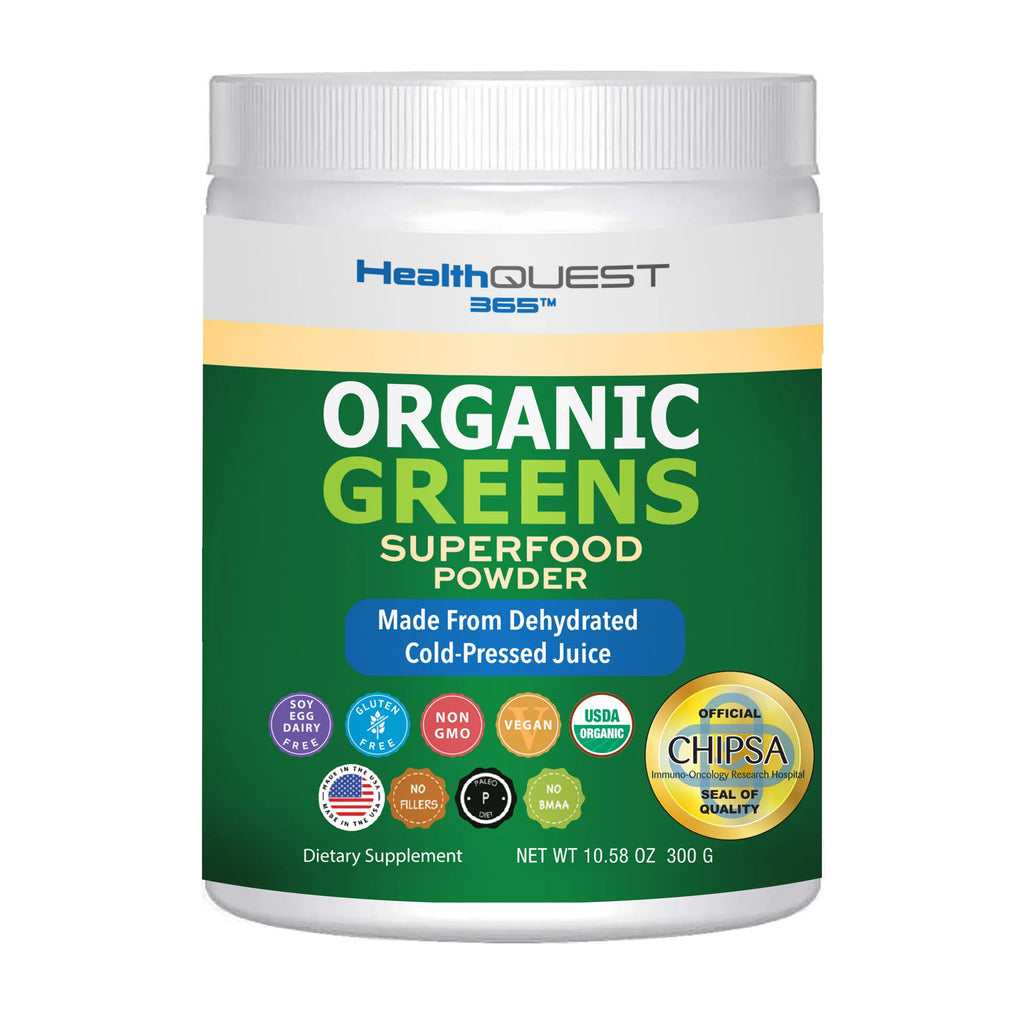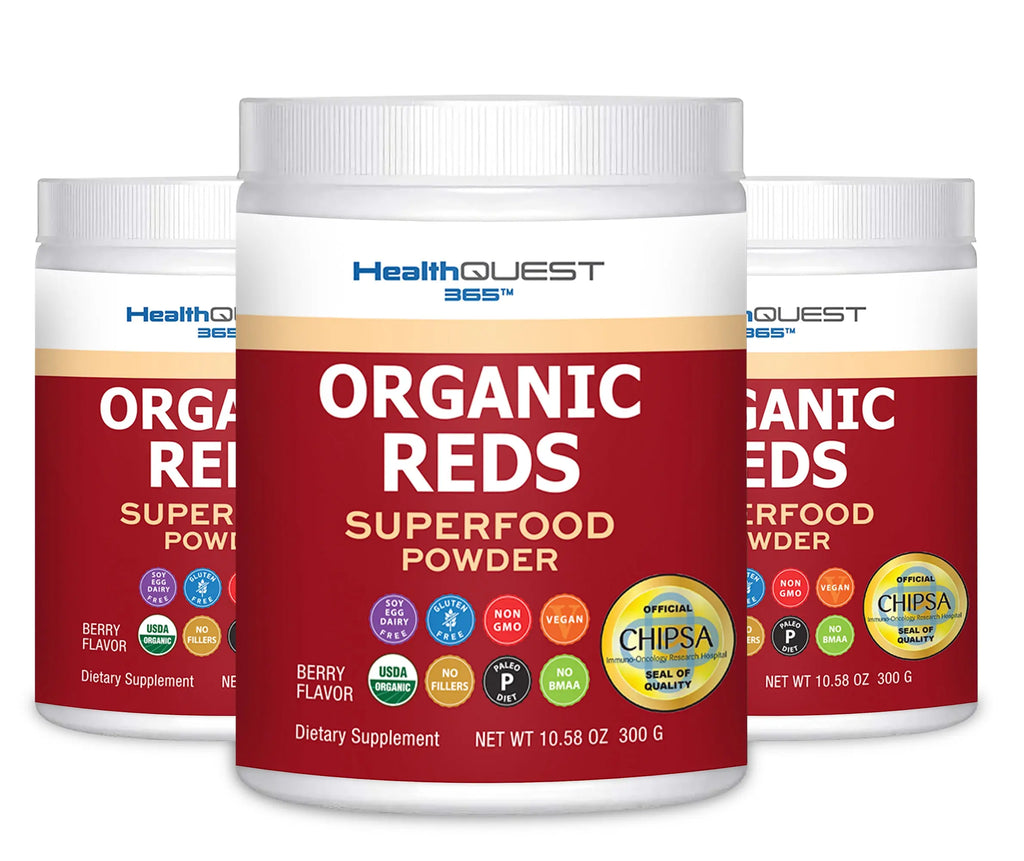It’s about health. It’s about healthy lifestyle. It’s about family™

Immune System Boosters
The immune system keeps us healthy and protected from germs and illnesses. It's made up of different parts of our body that work together to keep us safe. It's like having two lines of defense. The first are immune cells that fight off germs right away. The second line remembers how to fight them in the future.
Nutrition and food intake are crucial in maintaining your immune function. A balanced diet with enough vitamins, minerals, and antioxidants strengthens the immune response. Certain foods also help fight off infections and diseases.
Some nutrients, such as vitamin C, vitamin D, and zinc, positively impact the immune system. On the other hand, a diet lacking essential nutrients can weaken it. Therefore, dietary choices are crucial for a healthy immune system.

STRENGTHEN YOUR IMMUNE SYSTEM THROUGH A HEALTHY DIET
Eating organic greens has been associated with many health benefits. Studies show that they can raise the body's natural defenses thanks to their:
-
Vitamins
-
Minerals
-
Antioxidants
They also have phytonutrients. These can fight inflammation and support healthy cell growth. In addition, organic greens are packed with essential fatty acids and dietary fiber. These promote healthy eating, avoid getting sick and boost immune function.
By adding them to your diet, you can reap their full nutritional benefits. That includes enhanced immunity, better digestion, and better health.
MAINTAIN A HEALTHY IMMUNE FUNCTION
Cold and flu are especially expected during particular seasons of the year. You can reduce your risk of getting sick by taking steps to boost your immune system. You also need to protect yourself from viruses and infections. These steps include:
RATHER THAN SUPPLEMENTS, EAT FOODS RICH IN NUTRIENTS
Eating organic greens can ease inflammation and improve digestion. That can help the body better fight off potential illnesses.
The body absorbs certain vitamins and minerals best from animal-based sources. For example, take beef and seafood. But you can also get them from plant-based foods, such as:
-
Wheat germ
-
Beans
-
Nuts
-
Tofu
-
Legumes
Nutritious foods can be delicious. For example, you can go for citrus fruits, broccoli, and chicken soup.
In addition to regular water intake, eating healthy fats and whole grains is great for you. Consult your trusted doctor if you think you need supplementation.

Give You ALL Our Best Workbooks
Get all the Best Workbooks + Action Guides from our expert
ADEQUATE REST
You can help boost your innate immune system by:
-
Getting enough sleep
-
Avoiding smoking
-
Limiting alcohol consumption
Moreover, reducing chronic stress will help keep your immune system strong.
REGULAR PHYSICAL ACTIVITY
Regular physical activity can:
-
Enhance your overall well-being
-
Lower stress levels
-
Help you sleep better
Your immune system can protect you against damage caused by a sedentary lifestyle. But not for long.
PRACTICE GOOD HYGIENE HABITS
Good hygiene habits include washing your hands often with soap and water for 20 seconds. It's best to do so:
-
After going to the bathroom
-
Before eating
-
After blowing your nose, coughing, or sneezing
Additionally, cover your mouth and nose with a tissue when you cough or sneeze. Upper respiratory infections should not be shared with anyone else.
Regular cleaning and disinfecting of frequently touched surfaces are recommended. Finally, avoid touching your eyes, nose, and mouth with unwashed hands.


VACCINATION
Vaccination is crucial in preventing illnesses like COVID-19 and the flu. Vaccines are highly effective and safe for checking disease-causing microorganisms.
Vaccination helps your body generate molecules called antibodies. Your white blood cells make them fight viruses that enter your body. They also create "herd immunity," protecting vulnerable individuals.
Doctors recommend vaccines even if you eat healthy foods. By eating healthily and being proactive about illness prevention, you can fortify your body.
TAKING VITAMINS AND SUPPLEMENTS
Taking vitamins and supplements can lead to a healthier immune system. They provide the body with essential nutrients the body lacks.
VITAMIN B6
Vitamin B6 is found in many foods, such as meats, nuts, beans, and grains. It helps the body do the following:
-
Make and break down proteins
-
Produce red blood cells
Kiwi is a great source of Vitamin B6. Just one kiwi contains about 10% of the daily recommended intake. Curcumin is also a rich source, giving up to 18% of your daily needs per serving.

FREE "Mystery Gift"?
Let me stay in touch with you via email and as a thank you - get this FREE gift.. Something others paid over $1,000 for.
(True story)
SELENIUM
Selenium is crucial as it helps fight oxidative stress that damages cells. It also boosts the immune system and reduces the risk of certain types of cancer. Additionally, selenium is thought to aid fertility and brain health.
These minerals and vitamins are essential for optimal health. Dietary supplements may help those unable to have a healthy diet regularly. Speak with your doctor before taking new vitamins or supplements. After all, some of them may interact with medications or have side effects.
Also, only take the recommended dosage since taking too much can be harmful. Lastly, check the quality of what you take. There are many products available that do not meet safety standards.

VITAMIN D
Vitamin D can be found in fatty fish like salmon and tuna. It is also in fortified foods such as milk, yogurt, and breakfast cereals. It helps the body absorb calcium for strong bones and regulate cell growth. It's also crucial to improve your immune system.
VITAMIN E
Vitamin E is a powerful antioxidant. It helps protect immune system cells from oxidative stress and damage. It plays a role in maintaining the health of the skin, eyes, and immune system.
HEALTH QUEST 365: BOOST YOUR IMMUNE SYSTEM
It's time to strengthen your immune system. Your cells have specific needs to function optimally. Among other things, you can give it the necessary components to fight off illnesses. These range from the common cold and flu to COVID-19. Adding Organic Greens 365 to your daily routine can boost your immune system and health.
Organic Greens 365 is a superfood powder. It has a balanced blend of veggies, fruits, grass juices, and herbs. These are rich in whole-food vitamins and minerals. This powder can help control inflammation and support blood sugar management for a strong immune system.
Start promoting optimal immune health today with Organic Greens 365!
FREQUENTLY ASKED QUESTIONS
Yes, incorporating certain nutrients into your diet can help manage stress.
Limiting consumption of sugar, refined carbohydrates, caffeine, alcohol, high-sodium, and processed foods can help manage stress.
Yes, mindful eating practices, including understanding your hunger cues and savoring each bite, can help reduce stress levels.
Absolutely, physical exercise is a proven stress reducer and, combined with good nutrition, can greatly aid in managing stress.
Yes, consulting with a registered dietitian or nutritionist could provide personalized guidance to manage stress through nutrition.

